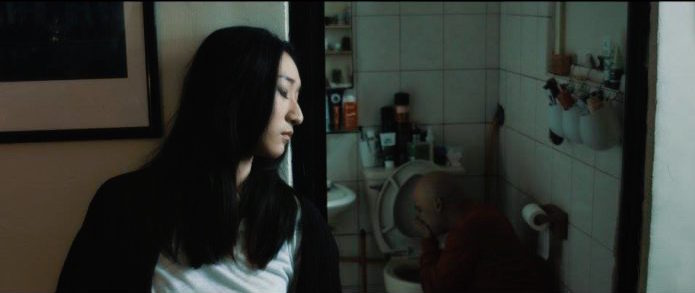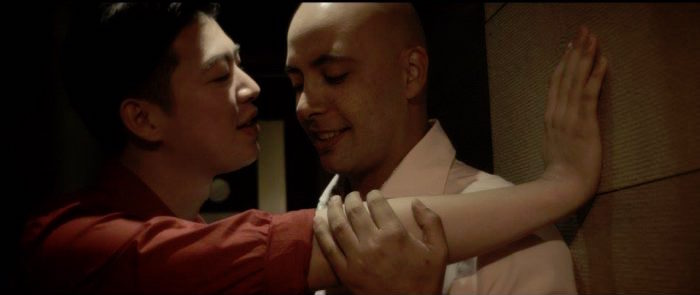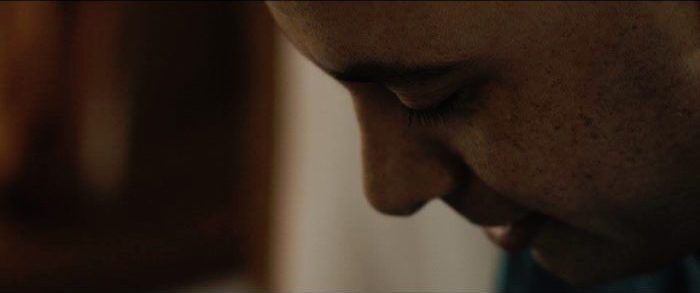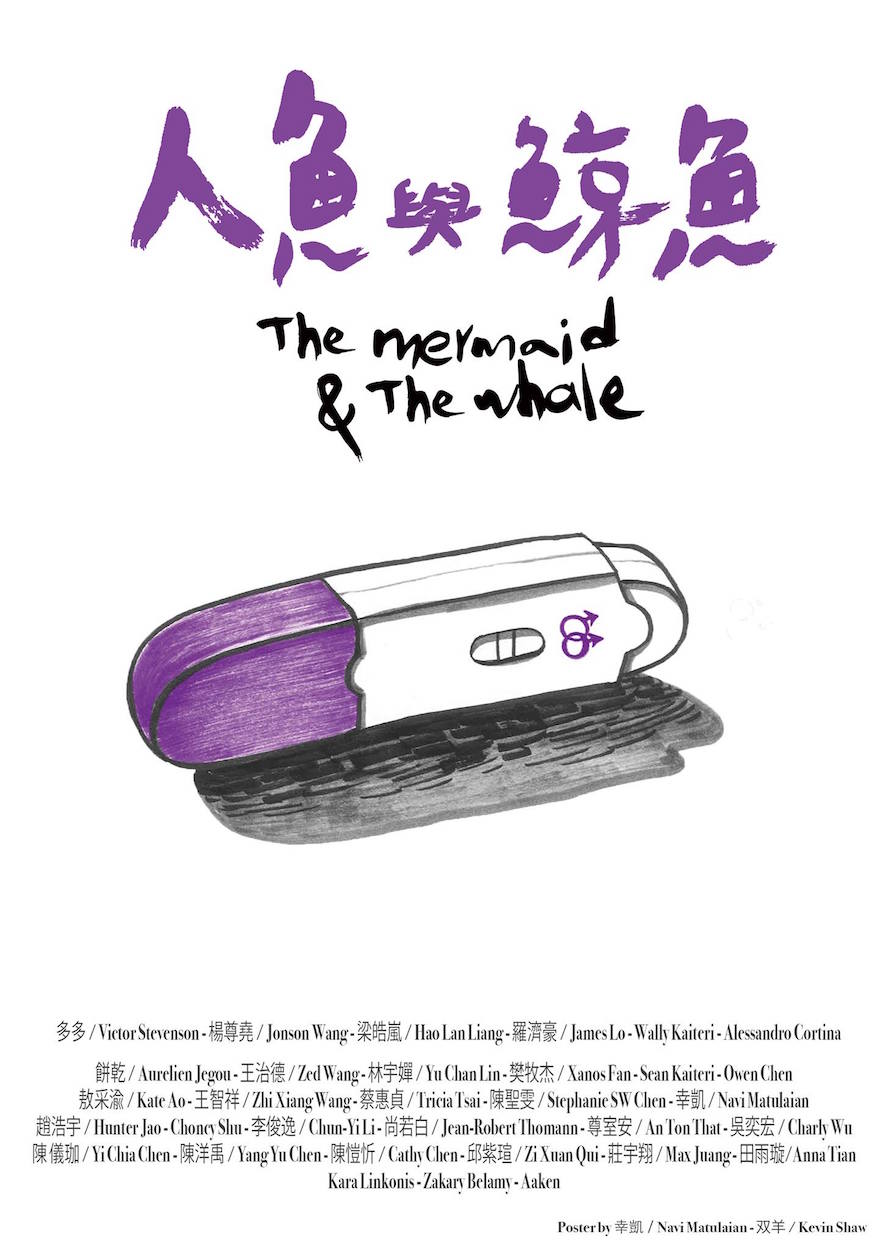by Garrett Dee
語言:
English
Photo Credit: The Mermaid and the Whale
Aurélien Jegou has been an actor since 14 years old, in various TV movies and movies., as well as directed 3 short movies, 8 short documentaries, and written two movie scripts. He has directed various music videos and advertisements in France, the US, and Taiwan. Recently, he directed The Mermaid and the Whale, which was shot in Taiwan. The following is an interview with Jegou conducted by New Bloom editor Garrett Dee.
Garrett Dee: You have worked in a variety of roles in the film and television industry, including both acting and directing positions. You started in France when you were quite young, and have worked in some productions in Taiwan in recent years. How was it transitioning between those two different film environments?
Aurélien Jegou: In fact, I have the feeling that what I did in France and what I’m doing in Taiwan is a bit different. In France, I was mostly acting in commercial TV series, TV movies, very calibrated. I also did short movies, but with the same crews. When I arrived in Taiwan, I had the sensation of a blank page. The business in which I worked in France was very localized : the programs were only sold to French speaking countries, so no one knew me in Asia. I had no reputation, no network, nothing to begin with. That was liberating, but also a bit frightening.
 Still from The Mermaid and the Whale. Photo credit: The Mermaid and the Whale
Still from The Mermaid and the Whale. Photo credit: The Mermaid and the Whale
To answer about a real transition, I couldn’t really feel any, because I began my life in Taiwan with learning Chinese for more than a year, so I was just studying and not really working in the field. However, when I decided to shoot “The Mermaid and the Whale”, I didn’t know how to shoot anything in Taiwan, and I naively assumed that it would be similar to France. In France, when I shot short movies, the network I had and the system that we had allowed people who worked on regular basis in audiovisual to take some pro-bono jobs. Rental houses would also lend gears and lights for almost free, so I had the sensation it was easier to shoot for almost nothing with experienced professionals and quality gears.
In Taiwan, the salaries are significantly lower, and there is no public system to support people who work in the industry. So I have the impression even experienced professionals have to be careful not to accept too low salaries or work for free, except when you’re a student supported by your family. It’s very difficult. But once again, maybe it’s also because I didn’t have any network in Taiwan to begin with! Anyways, I’m very grateful to the crew who believed in the story I wrote and accepted to contribute to it with a lot of patience for my poor Chinese and my ignorance of the working conditions in Taiwan.
Knowing that, my next short movie has been written to be shot with a very minimal crew and just one actor.
GD: The film operates from the fairly unique premise of a same-sex couple’s one-night stand resulting in an unexpected pregnancy and the ensuing consequences. Where did the concept for this film initially come from?
AJ: It’s been worked and re-worked, and re-re-worked, and adapted from a French story to become a Taiwanese story, but the origin is very simple. One night, a long time ago, I dreamt I was pregnant. It was one of those vivid dreams that can stay with you for days. The sensation of being pregnant was incredibly real and I felt full of hope and joy, it was a very organic feeling. I immediately wanted to turn this sensation into a story, but I didn’t want it to be a comedy, I wanted to shoot the “real sensation”, even if it was obviously a “fantastic” story. The story was built at first as a feature movie with the help of two wonderful writers, Harold Bultez and Julien Peny, around this sensation. It was not long before the gay marriage was legalized in France and the climate was pretty violent against homosexuals. We heard we were “abominations”, we were often physically assaulted in the streets, in the metro, so we decided to make this story about tolerance, and to show that whether you’re a man, a woman, white, pink, black or violet, you still feel the same inside; You feel pain when you’re rejected, when you have to hide because people think you’re a monster, even if deep inside yourself, you feel you’re just normal.
 Still from The Mermaid and the Whale. Photo credit: The Mermaid and the Whale
Still from The Mermaid and the Whale. Photo credit: The Mermaid and the Whale
As for the “one night stand”, this is something else. When I was single and freshly arrived in Taiwan, I was often told by dates that foreigners are not faithful and like to play around, when I actually just wanted to have a one and only boyfriend. I just wanted to make a small and modest statement with this short movie; Foreigners can also be romantic, and faithful. I felt that this aspect also reinforced the “normal” aspect of this pregnancy. Some pregnancies happen unexpectedly, and you still have to deal with it physically and psychologically, despite your culture, country, origin, sexual orientation, or anything. It’s very organic.
GD: The film is shot in such a way as to draw the audience’s attention towards the actor’s faces and expressions during many of the scenes, and a lot seemed to be conveyed just by the actors themselves. What was the casting process like for this film? Was it challenging to find the right actors?
AJ: Well, the most challenging was to find actors without budget, but I’ve been very lucky! As an actor myself, I’ve seen a lot of directors who consider actors as puppets : They have a fix image of how the film should be and they’re trying to make everyone work toward this image. I work a bit differently. To me, the work of a director is mainly to be a diplomat, and to make everyone work together so the film will be coherent in the end. So I rarely impose anything to the actors (or to any of the crew), but I try instead to adapt what they develop by themselves, how they understand the lines. It’s a lot of discussions, but eventually, we always reach some satisfying agreement between actors, DOP, and director.
When auditioning, I simply apply the same process : I always choose the actors with who I can communicate. If it goes both ways, it’s all good!
GD: The film is produced completely in Chinese. Was this your first time producing something of this length in Chinese? What were the challenges, if any, of producing this film in a way that fit a local cultural context?
 Still from The Mermaid and the Whale. Photo credit: The Mermaid and the Whale
Still from The Mermaid and the Whale. Photo credit: The Mermaid and the Whale
AJ: Yes, it was my first in Chinese. It was at the same time very exciting and terrifying. For me, there is always a moment on a shooting when I feel the story of the film itself is escaping me. It can be a lighting I didn’t think about on a set, an actor who plays something that I didn’t expect. On this one, I was sometimes totally out of the loop during the pre-production meetings because it was all in Chinese, and I wasn’t familiar with some technical terms, so I had the sensation that the story escaped me as soon as we began preparing the shooting! Great sensation, but a bit frightening. Luckily, I was surrounded by amazing professionals, and we all prayed a lot before shooting, and in the middle of it. Even though I’m an atheist, I strongly believe that a shooting of a story is a spiritual matter, and I found it very liberating to pray to the Kind Spirits of Taiwan. It was like the fate of the shooting wasn’t in my hands anymore, even if I was doing my best to complete it.
For the local cultural context, it’s an interesting question. Taiwan is a culture of adoption for me. My mythology and the patterns of my actions in everyday life are definitely, if not French, at least European. So I can only give my foreign vision of the Taiwanese culture. I can document myself all I want, read all the books, study Chinese as much as a Korean. I will always be a foreigner in Taiwan. And I think that’s what is interesting in Taiwanese cinema since a while. When you see Tsai Ming Liang or Midi Z’s film, there is a special vision of Taiwan, something coming from elsewhere. An image, a rhythm, which would be a bit shifted from place. Of course, I’m not comparing my no budget short movie to their movies, just the situation; I accept being a foreigner in Taiwan and maybe I can bring a somehow special hybrid vision on culture. Maybe…
GD: Were there any surprises for you or any of those involved in the production of the film?
AJ: I have the feeling that a no budget “guerilla” production is all about surprises! My 2nd short movie production manager told me once something that became my motto: “In shootings, there are no problems. Only solutions.” Since then, I keep an open mind about everything that could happen. I never stopped shooting, and the crews I’m working with and I always found ways to complete all the shootings one way or another.
GD: How was the film been received since it began screening? Were there any reactions to the film that stand out to you?
 Still from The Mermaid and the Whale. Photo credit: The Mermaid and the Whale
Still from The Mermaid and the Whale. Photo credit: The Mermaid and the Whale
AJ: I learned a lot from the screening. I discovered that the situation of a pregnant man was by essence comical to most of the audience, so when seeing this situation, people would definitely pick up the slightest trace of comedy to think about the entire short movie as a comedy. That’s also why I decided on a second editing to make it a bit darker. I wanted the audience to consider this situation seriously.
At the first screening, apparently, a friend reported me there were people that were shocked or annoyed by the subject itself, and during the screening, they were mumbling things between their teeth, like it was a scandalous subject, against nature, etc. but I didn’t hear them and they didn’t say anything during the Q&A. After that, it was mostly screened into LGBT festivals, or festivals that were too far for me to attend. I did some skype Q&A, and the audiences were all very kind to me and interested in the subject.
The only question that I was surprised of was “Why didn’t you make it as a big fat comedy ? There are so many situations where the pregnant man could fart or puke or be comical…” I didn’t really know how to answer that, except that it’s already been done, and my point with this short story is totally elsewhere. To me, it’s a very 80’s and 90’s concept to turn gay people (or any minority for that matter) into caricatures and make jokes about them.
GD: The message of the film could certainly be seen as subversive of society’s conceptions of gender and family. Are you hoping this film has an impact on attitudes towards same-sex couples, either in Taiwan or elsewhere? If so, how do you hope it will be received?
AJ: When I shoot anything, I always hope for it to be useful in any way possible. I never know if it’ll be, or how it’ll be, or even if it’ll really be useful…I just try to do it in a good spirit.
 The Mermaid and the Whale film poster. Photo credit: The Mermaid in the Whale
The Mermaid and the Whale film poster. Photo credit: The Mermaid in the Whale
I didn’t try to be subversive telling that story. Like in every fictive story, there is of course a backstory, and I hope the audience would either learn something, ask themselves questions, or at least be entertained (the three at the same time is jackpot). I just tried to show that even if some of us are different, we’re still all human. I was not only concerned about LGBT matters, it’s also a transcultural matter. This echoes to a sentence I put in the film as a quote from a French movie : “The majority thinks that way, but which majority? Is it the majority that thought the earth was flat ?”
GD: Do you have any upcoming projects, and do you think you will be exploring any similar themes in the future?
AJ: Yes! I’m actually actively researching budget for the feature version of this short movie. The script will be a bit different though, more developed, with more transcultural aspects, and more details about the main character. I wanted to develop a more dramatic and troubling story, which would work a bit like a matryoshka, a story in a story, in a story. In this script, I’m not only exploring the character’s situation (being pregnant), but also his past, his expectations, his family background, etc. I’m very impatient to shoot it.
Otherwise I’m shooting this month two short movies in Taiwan, one is about two women unable to express their feelings, the script is from a Chicago author, and another one, “Insomnia”, which is the story of a young man who killed his boyfriend, and the boyfriend comes back to know why he killed him.
And finally, I’m also working with a very talented Taiwanese script writer on a fantastic story, that would take place in a near future Taipei. It’s mostly an extrapolation about entertainment and more precisely the concept of euergetism, and the place it takes in modern society.

